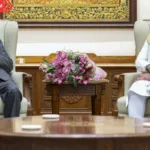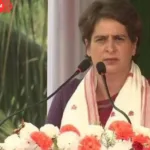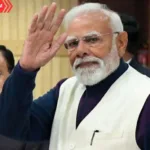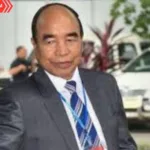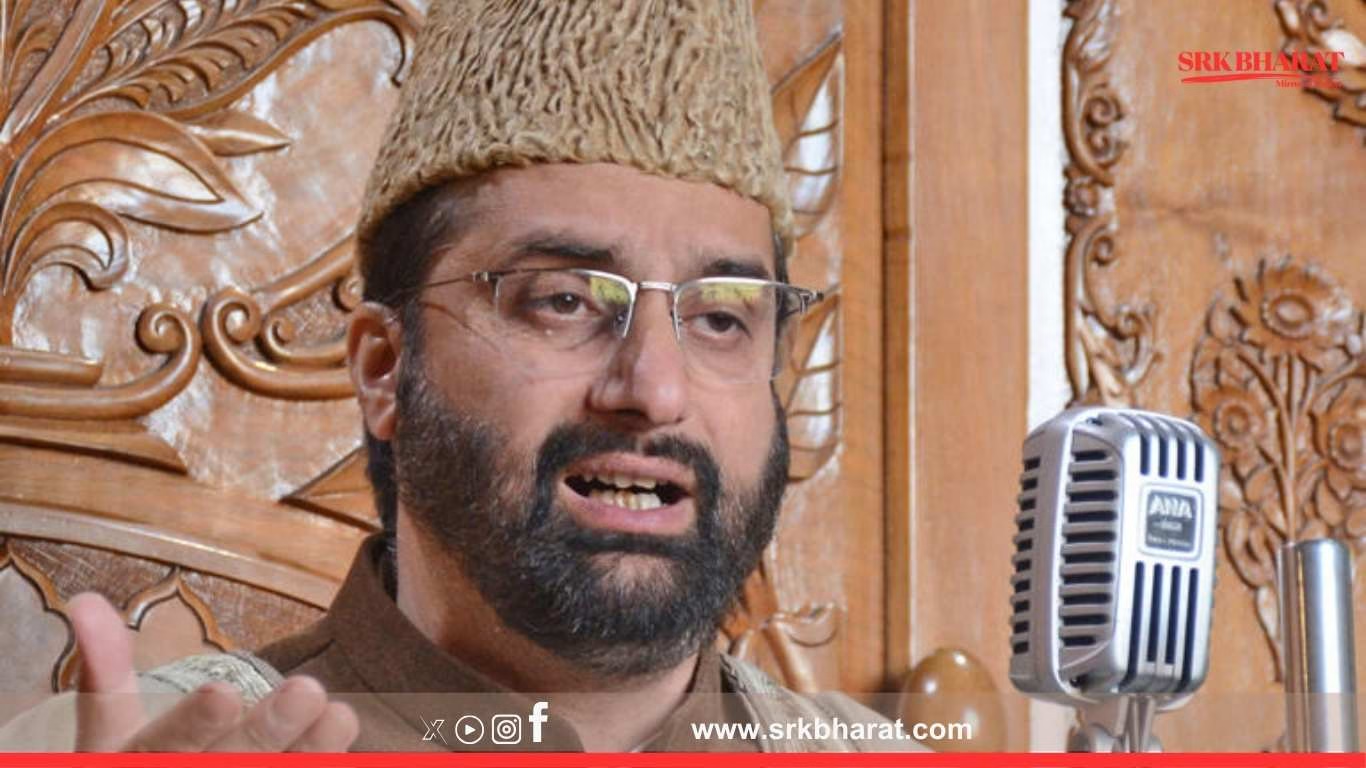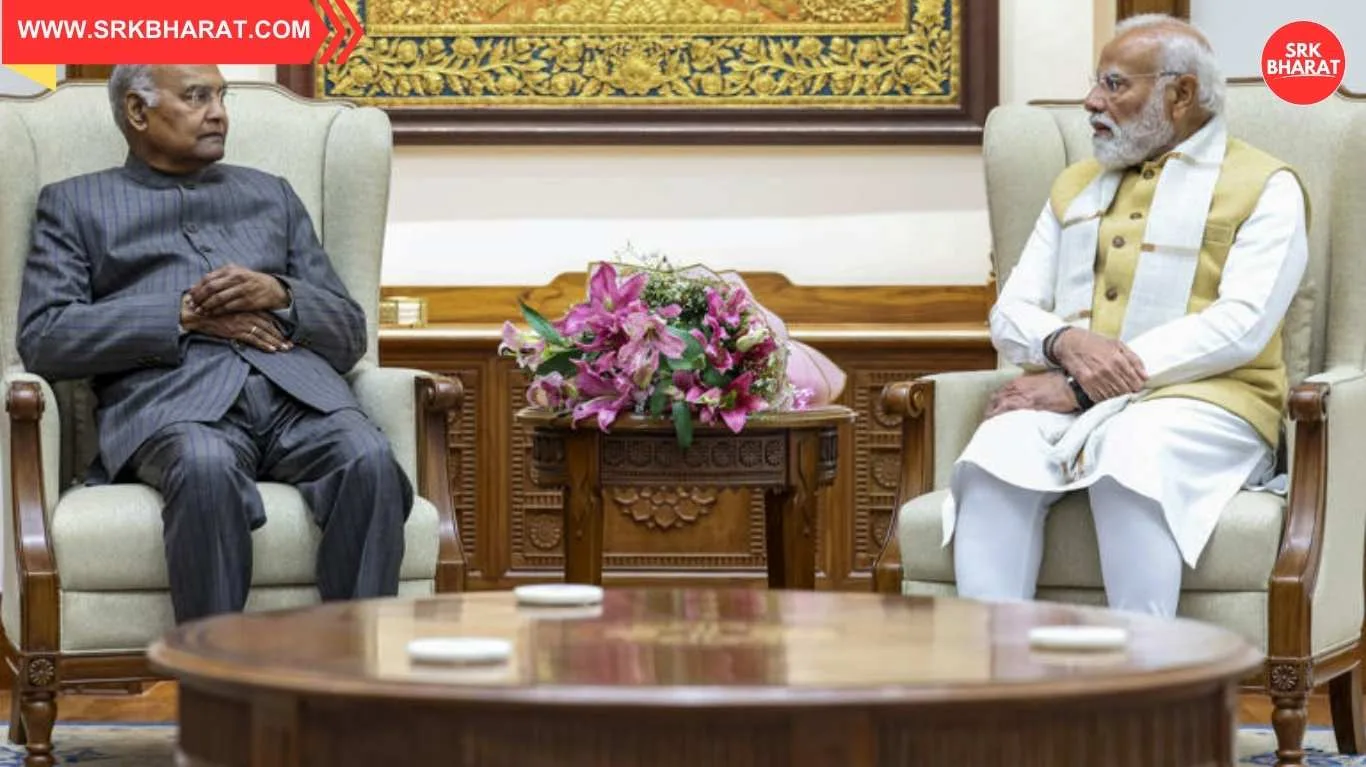Mirwaiz Umar Farooq, the prominent religious and separatist leader of Jammu and Kashmir, has claimed that he has been placed under house arrest yet again, triggering political reactions and concerns over the curbs imposed on Kashmiri leaders amid sensitive security situations in the region. His assertion comes as the Valley witnesses heightened security checks ahead of upcoming religious gatherings and amid ongoing counter-terror operations.
What Did Mirwaiz Say?
In a statement released on social media and shared by his close aides, Mirwaiz Umar Farooq said:
“I have been put under house arrest today and barred from offering Friday prayers at Jamia Masjid. This continued detention is unjust and deeply painful.”
Mirwaiz, who is the head priest of Kashmir’s largest mosque Jamia Masjid in Srinagar and chairman of the Hurriyat (Mirwaiz faction), further alleged that his fundamental rights are being curtailed, calling the move an attempt to “silence voices of peace and dignity.”
Background of Mirwaiz’s Detention History
Mirwaiz Umar Farooq has faced repeated detentions and house arrests, especially since the abrogation of Article 370 in August 2019. While he was released for short periods to deliver Friday sermons earlier this year, he continues to face restrictions on movement during sensitive security deployments in Srinagar.
Key instances include:
- August 2019: House arrest post Article 370 abrogation for over three years.
- March 2022: Allowed limited access to Jamia Masjid for Friday prayers after global and local appeals.
- 2023-24: Multiple intermittent house arrests during security operations and Republic Day or Independence Day commemorations.
Why Was He Detained Now?
Security agencies have not issued an official statement regarding Mirwaiz’s fresh detention. However, local police sources indicate preventive detention measures ahead of potential protests or gatherings that could escalate tensions in Srinagar’s downtown area.
Security officials cite:
- Recent attacks on security personnel in South Kashmir.
- Fear of mobilisation by separatist leaders amid geopolitical volatility.
- Inputs suggesting possible anti-national sloganeering or gatherings being planned.
Political Reactions
The fresh house arrest triggered sharp reactions from Kashmir’s mainstream political parties.
Mehbooba Mufti (PDP Chief)
“Locking up religious leaders like Mirwaiz shows the government’s fear of dissent. This policy of repression will further alienate people.”
Omar Abdullah (NC Leader)
“If Mirwaiz is under house arrest again, it proves the normalcy claims are hollow. Allowing religious leaders to perform their duties is fundamental in a democracy.”
People’s Conference
“This is an affront to religious freedom and human dignity. Such detentions must end immediately.”
Impact On Srinagar’s Socio-Religious Sentiments
Mirwaiz is widely regarded not only as a political figure but also as a spiritual leader among Kashmiri Muslims. His absence from Jamia Masjid’s Friday sermons has deep emotional and cultural ramifications, often resulting in subdued protests or resentment in Srinagar’s Old City areas.
According to local residents:
- Shopkeepers in Nowhatta and Rajouri Kadal reported reduced footfall due to heavy security deployments near Jamia Masjid.
- Youth groups criticised the administration for “deliberate targeting of a religious leader.”
Security Context: Rising Militancy Concerns
The house arrest coincides with:
- Renewed infiltration attempts across LoC sectors as per recent army statements.
- Increased presence of foreign militants in Pulwama, Kulgam, and Shopian.
- Ongoing Amarnath Yatra security protocols, involving multi-tier surveillance and crackdown on potential threats.
Mirwaiz’s Current Stand On Political Dialogue
In his recent public speeches, Mirwaiz had called for:
- Restoration of statehood to Jammu and Kashmir.
- Release of political prisoners detained since 2019.
- Resumption of Indo-Pak dialogue for long-term regional peace.
Observers note that his tone has been moderate in comparison to hardline separatist rhetoric, focusing more on rights, dignity, and peaceful resolution.
Legal Framework: Preventive Detention Provisions
Under Section 107 of CrPC and the Public Safety Act (PSA), authorities in J&K exercise preventive detention powers frequently for leaders deemed potential instigators. Critics argue such actions violate constitutional freedoms, while security agencies maintain these are essential for preempting unrest.
Community Voices
| Stakeholder Group | Response |
|---|---|
| Jamia Masjid Committee | Expressed anguish, stating preventing Mirwaiz from leading prayers is an infringement on religious freedom. |
| Civil Society Organisations | Called for revocation of house arrest orders and protection of religious rights. |
| Youth activists | Accused authorities of stifling moderate leadership, potentially radicalising disillusioned youth. |
Expert Views
Kashmir Security Analyst
“The administration prioritises stability over symbolic gestures. Mirwaiz’s detention is preventive, but it fuels the narrative of repression.”
Human Rights Lawyer
“House arrests without judicial oversight violate Article 21 and Article 25 of the Constitution, especially when prolonged without legal recourse.”
What Lies Ahead?
With no official clarity on the duration of his house arrest, Mirwaiz’s restrictions could continue through upcoming Islamic calendar events to pre-empt gatherings. Political observers suggest the move might:
- Further erode credibility of government normalcy claims.
- Strengthen separatist sentiment in Old Srinagar.
- Draw international attention from rights watchdogs already scrutinising J&K’s human rights situation.
Broader Political Climate In Jammu & Kashmir
The incident comes amid:
- Preparations for possible Assembly elections later this year.
- Rising infiltration attempts and sporadic terror attacks across the region.
- Government efforts to project stability via investment summits and tourism promotion campaigns.
Conclusion
The fresh house arrest of Mirwaiz Umar Farooq highlights the delicate balance between security measures and political freedoms in Jammu and Kashmir. While the government justifies its decisions under security considerations, critics view it as part of a broader clampdown on dissenting or alternative voices in the Valley.
With mounting criticism from regional parties, religious bodies, and civil society, Mirwaiz’s detention will remain a flashpoint in the evolving Kashmir discourse, particularly in the run-up to potential electoral processes and high-profile diplomatic visits to the Union Territory.
Disclaimer: This news article is based on official statements, security assessments, and public reactions at the time of publication. It is intended for informational purposes only and does not constitute legal or political advice. Readers are encouraged to follow updates from the Jammu & Kashmir administration and Mirwaiz’s official communication channels for verified developments.

